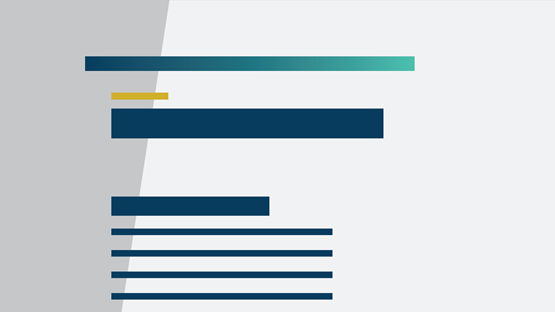Sanctions imposed on Russia for its invasion of Ukraine are evolving almost daily. Russian banks are blocked from many international transactions. Assets held abroad are frozen. Export bans have cut off Russian access to crucial technology. Russian bonds and stocks are untouchable for many global investors, without the financial architecture to trade them. Russian planes can’t fly through U.S., European, or Canadian airspace; a ban on Russian shipping vessels is on the table.
Senior Research Economist Javier Bianchi is among a set of experts at the Minneapolis Fed who specialize in the specters suddenly facing the Russian people: sovereign debt default, bank runs, currency crises. We checked in on what signals he’s watching, what we’re learning, and Russia’s capacity to weather the extraordinary international actions.
The views cited in this article do not necessarily reflect those of the Federal Reserve Bank of Minneapolis or the Federal Reserve System.
Until now, at least, there has been a prominent strain of conventional wisdom that has been skeptical of sanctions, looking at the places where they have been applied and whether they have been very effective at changing behavior. Do you think we are looking at a fundamentally different situation here?
I think the jury is still out in terms of how effective sanctions are. It’s often very difficult to disentangle the effect of sanctions from other economic forces going on.
In this case, however, it seems like the set of sanctions are unprecedented in terms of cutting banks off from SWIFT1 (financial messaging network) and blocking of the use of reserves by the Russian central bank. That’s a big deal. I also think there is probably a lot more that could still be done—starting with the energy sector, which is a large source of exports and financing for the government.
[Vladimir] Putin has been preparing for these sanctions, of course. But my reading is that perhaps he didn’t anticipate the severity of the sanctions. In particular, when I think about currency reserves: Russia has accumulated reserves equivalent to 30 percent of GDP. But more than half of it is in central banks in Western countries, which cannot be used. In addition, 20 percent of its foreign currency reserves are in gold, which are inside Russia. But to be able to use them, it needs to sell them. And given the restrictions it faces, it’s not clear Russia will be able to use that liquidity.
To me, the big uncertainty is how much Russia can escape the sanctions through China. The Russian central bank cannot use its reserves, but what if China sets up a line of credit for Russia? That’s going to fix some of the liquidity problems. Similarly, with trade restrictions Russia can still sell to China or perhaps export to other countries through China.
What is the chain of events that play out when a country is unable to access its foreign currency reserves?
One issue is that Russia cannot use reserves to finance spending. Another issue has to do with financial stability. The idea is that having reserves helps to convince the public that if there’s a run on banks or on the currency, the central bank stands ready to use them. In this case, given that the Russian central bank is not going to have all of the reserves at its disposal, this makes it quite likely that a bank run could take place in Russia. And indeed, we’re seeing already a little bit of that in terms of lines for ATMs and in the collapse of the Russian ruble.
What other critical indicators or signals are you watching to understand just how deeply the sanctions are affecting Russia’s economy?
The most immediate effect, apart from those, is the Russian stock market. We’ve seen the market collapsing 30 or 40 percent, and the fall could have been larger if the stock market was not shut down. The stock market reflects the immediate expectations of investors about the future cash flows of firms. That shows that the market expects the sanctions to have quite a bit of bite.
More than just what will happen next week, the Russian stock market seems to be signaling that people see a long-term impact from this—the market access and prospects for success of firms well out into the future.
Absolutely. Now, in addition to the cash flow effect that I just mentioned, the Russian stock market also reflects the perceived uncertainty and the price of risk. And that’s another reason why the stock market would fall. There are liquidity constraints that are kicking in, so Russians might expect difficult times ahead, and they rush now to sell because they need the liquidity. The stock market’s going to be capturing all of those forces.
Finally, the stock market could also be falling because of the damage and the consequences of the war per se for the Russian economy. So, part of the collapse in the stock market is due to the sanctions, but the other part is just the damage of the war.
The Russian Central Bank has raised interest rates dramatically. The government has instituted strict capital controls. How feasible is it for Russia to keep assets and foreign currency from fleeing its borders?
Many countries have used restrictions on capital outflows in the past in the context of wars. In World War I, the use of capital controls was quite widespread as a way to elevate savings and finance the war. Before World War II, Nazi Germany also imposed the “Reich Flight Tax” which indirectly ended up confiscating Jewish assets by forcing them to sell at low prices.
We also saw economies apply similar restrictions, for example, Malaysia in the late 1990s East Asian financial crisis and more recently Iceland and Cyprus after the global financial crisis.
In a recent paper I wrote for the Handbook of International Economics with Guido Lorenzoni,2 we reviewed the evidence on the effectiveness, and we found it is somewhat mixed. But I expect it to be quite effective for Russia. Being an autocratic regime, this implies that people or companies that evade the controls would face very severe penalties. That doesn’t mean that it’s going to prevent bank runs and the currency crisis. But it’s going to help Russia mitigate the capital flight.
I suppose Russia is leaving itself a little bit of room to run. Do you see other tools in the back pocket of Russia that it could deploy along the way to try to weather this?
We know from the seminal work of Diamond and Dybvig that the way to stop a bank run is to declare a bank holiday and prevent people from taking out their deposits. And I think it’s very likely we will see that.
That policy option is not free, because people need the money and they cannot take it out. But considering that the Russian central bank cannot use its reserves, it does not have the tools to address a panic in financial markets and the currency markets without imposing some kind of bank holiday.
The Central Bank of Russia has also responded by raising the interest rate from 10 percent to 20 percent. That helps prevent a depreciation, but it may also exacerbate a recession. So that’s not an easy solution for the Russian economy.
Blocking sales of Russian energy is an “X factor” here, but it’s an option, as you said. What are your thoughts for how these various actions rebound on the world economy? What is the economic price of using these historic sanctions to pursue noneconomic goals in Ukraine?
Yes, there’s going to be some short-run pain from the sanctions for us and for Europe. But the cost of not doing it, I think, is much larger over the medium term and long term. I think it’s a necessary sacrifice, and there is really no easy way out.
And there are ways to counteract that. The U.S. can use oil reserves. Moreover, other countries are going to start producing more as soon as prices go up. We’ve been discussing for a long time moving away from oil. The increase in the price would actually help that transition and in my view is something desirable.
Should Ukraine emerge from this as an independent but presumably highly damaged country, how do you imagine an international financial package that helps them move forward?
There’s going to have to be a huge financial aid package; there’s no question about that. Ukraine has been fighting for its own freedom but it’s also fighting on behalf of the rest of the world. I think it’s clear that there will be a need for financial aid to basically rebuild their economy.
As an economist who studies bank runs, capital controls, liquidity crises, this will be an important research moment for you and for those in your field. What would you hope to take away—what can we all learn—from what we’re going to be experiencing for the next weeks and months?
On some level, Russia is going to be experiencing the types of crises that we have been studying for a while. In this case, the trigger is a war and the sanctions it has provoked. I expect there is going to be a large body of literature trying to understand better the economic impact of the sanctions both empirically and theoretically.
Endnotes
1 The Society for Worldwide Interbank Financial Telecommunication (SWIFT), an international messaging system used by financial institutions to convey information about financial transactions.
2 Breen Family Professor of Economics at Northwestern University.
Jeff Horwich is the senior economics writer for the Minneapolis Fed. He has been an economic journalist with public radio, commissioned examiner for the Consumer Financial Protection Bureau, and director of policy and communications for the Minneapolis Public Housing Authority. He received his master’s degree in applied economics from the University of Minnesota.





